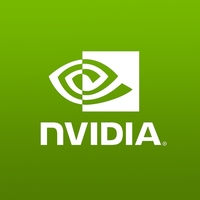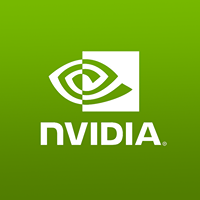The AI Surge: Transforming Healthcare and Tech Industries
March 5, 2025, 4:19 pm
The world is on the brink of a technological renaissance. Artificial intelligence (AI) is not just a buzzword; it’s a revolution. In healthcare, AI is reshaping patient care. In tech, it’s driving unprecedented growth. The convergence of these forces is creating a new landscape, one where efficiency and innovation reign supreme.
Take AvaSure’s Virtual Care Assistant, for instance. This AI-driven platform is like a digital concierge for hospitals. It’s designed to streamline operations and enhance patient interactions. Imagine a friendly avatar named “Vicky” guiding patients through their healthcare journey. Vicky triages requests, ensuring urgent needs are met swiftly. A patient with chest pain? Routed to the clinical team in a heartbeat. A request for room temperature adjustment? Sent to maintenance without delay. This is not just technology; it’s a lifeline.
The healthcare sector is often bogged down by inefficiencies. Long wait times and miscommunication can frustrate both patients and providers. AvaSure’s solution centralizes patient requests into a single dashboard. This means healthcare teams can see the big picture. They can allocate resources effectively, improving response times and workflows. It’s like turning a chaotic orchestra into a harmonious symphony.
But the innovation doesn’t stop there. Nvidia, a titan in the tech industry, is riding the AI wave with its Blackwell semiconductors. The company’s growth forecast signals that the demand for AI chips remains robust. Despite whispers of competition from emerging players like DeepSeek, Nvidia’s orders are “amazing.” Their chips are the backbone of AI applications, powering everything from data centers to autonomous vehicles.
Nvidia’s transition to the Blackwell architecture is a game-changer. Instead of selling individual chips, they’re offering complete AI computing systems. This shift is akin to moving from selling parts of a car to providing fully assembled vehicles. The market is responding. Nvidia’s revenue from Blackwell-related products surged, accounting for half of its data center revenue. The company is not just keeping pace; it’s setting the tempo.
However, the road hasn’t been without bumps. Nvidia faced skepticism as competitors emerged. DeepSeek’s claims of low-cost AI models raised eyebrows. Investors worried about sustainability in AI chip demand. Yet, Nvidia’s recent performance has quelled those fears. The company reported a staggering 78% revenue growth in the last quarter. This is not just survival; it’s thriving in the face of adversity.
The AI landscape is evolving rapidly. Companies like Microsoft and Meta are pouring billions into AI development. Microsoft has earmarked $80 billion for AI this fiscal year. This investment is a testament to the belief in AI’s potential. But with great investment comes great scrutiny. Reports of potential oversupply in data centers have surfaced. The market is in flux, and companies must adapt quickly.
Despite these challenges, Nvidia’s momentum remains strong. Their products are still in high demand, especially among hyperscalers—large cloud computing companies. This is where the real power lies. As businesses increasingly rely on cloud services, the need for robust AI infrastructure grows. Nvidia is positioned to capitalize on this trend.
The healthcare sector and tech industry are intertwined in this AI narrative. AvaSure’s Virtual Care Assistant exemplifies how AI can enhance patient care. It’s a tool that empowers healthcare providers to deliver better service. Meanwhile, Nvidia’s innovations are fueling the tech industry’s growth. Together, they are shaping a future where technology and healthcare work hand in hand.
The implications are profound. As AI continues to evolve, it will redefine how we interact with technology. In healthcare, it promises to make care more accessible and efficient. In tech, it drives innovation and growth. The synergy between these sectors creates a fertile ground for new ideas and solutions.
Looking ahead, the future is bright. The AI boom is far from over. Companies are investing heavily, and the demand for AI solutions is only set to increase. The landscape will continue to shift, but one thing is clear: AI is here to stay. It’s not just a trend; it’s a transformation.
In conclusion, the convergence of AI in healthcare and technology is a powerful force. AvaSure’s Virtual Care Assistant and Nvidia’s Blackwell semiconductors are just the tip of the iceberg. As these industries evolve, they will unlock new possibilities. The journey is just beginning, and the potential is limitless. The future is now, and it’s powered by AI.
Take AvaSure’s Virtual Care Assistant, for instance. This AI-driven platform is like a digital concierge for hospitals. It’s designed to streamline operations and enhance patient interactions. Imagine a friendly avatar named “Vicky” guiding patients through their healthcare journey. Vicky triages requests, ensuring urgent needs are met swiftly. A patient with chest pain? Routed to the clinical team in a heartbeat. A request for room temperature adjustment? Sent to maintenance without delay. This is not just technology; it’s a lifeline.
The healthcare sector is often bogged down by inefficiencies. Long wait times and miscommunication can frustrate both patients and providers. AvaSure’s solution centralizes patient requests into a single dashboard. This means healthcare teams can see the big picture. They can allocate resources effectively, improving response times and workflows. It’s like turning a chaotic orchestra into a harmonious symphony.
But the innovation doesn’t stop there. Nvidia, a titan in the tech industry, is riding the AI wave with its Blackwell semiconductors. The company’s growth forecast signals that the demand for AI chips remains robust. Despite whispers of competition from emerging players like DeepSeek, Nvidia’s orders are “amazing.” Their chips are the backbone of AI applications, powering everything from data centers to autonomous vehicles.
Nvidia’s transition to the Blackwell architecture is a game-changer. Instead of selling individual chips, they’re offering complete AI computing systems. This shift is akin to moving from selling parts of a car to providing fully assembled vehicles. The market is responding. Nvidia’s revenue from Blackwell-related products surged, accounting for half of its data center revenue. The company is not just keeping pace; it’s setting the tempo.
However, the road hasn’t been without bumps. Nvidia faced skepticism as competitors emerged. DeepSeek’s claims of low-cost AI models raised eyebrows. Investors worried about sustainability in AI chip demand. Yet, Nvidia’s recent performance has quelled those fears. The company reported a staggering 78% revenue growth in the last quarter. This is not just survival; it’s thriving in the face of adversity.
The AI landscape is evolving rapidly. Companies like Microsoft and Meta are pouring billions into AI development. Microsoft has earmarked $80 billion for AI this fiscal year. This investment is a testament to the belief in AI’s potential. But with great investment comes great scrutiny. Reports of potential oversupply in data centers have surfaced. The market is in flux, and companies must adapt quickly.
Despite these challenges, Nvidia’s momentum remains strong. Their products are still in high demand, especially among hyperscalers—large cloud computing companies. This is where the real power lies. As businesses increasingly rely on cloud services, the need for robust AI infrastructure grows. Nvidia is positioned to capitalize on this trend.
The healthcare sector and tech industry are intertwined in this AI narrative. AvaSure’s Virtual Care Assistant exemplifies how AI can enhance patient care. It’s a tool that empowers healthcare providers to deliver better service. Meanwhile, Nvidia’s innovations are fueling the tech industry’s growth. Together, they are shaping a future where technology and healthcare work hand in hand.
The implications are profound. As AI continues to evolve, it will redefine how we interact with technology. In healthcare, it promises to make care more accessible and efficient. In tech, it drives innovation and growth. The synergy between these sectors creates a fertile ground for new ideas and solutions.
Looking ahead, the future is bright. The AI boom is far from over. Companies are investing heavily, and the demand for AI solutions is only set to increase. The landscape will continue to shift, but one thing is clear: AI is here to stay. It’s not just a trend; it’s a transformation.
In conclusion, the convergence of AI in healthcare and technology is a powerful force. AvaSure’s Virtual Care Assistant and Nvidia’s Blackwell semiconductors are just the tip of the iceberg. As these industries evolve, they will unlock new possibilities. The journey is just beginning, and the potential is limitless. The future is now, and it’s powered by AI.

